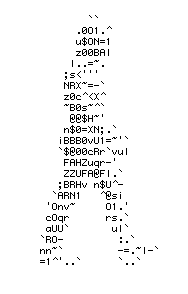Released in 1963, Flaming Creatures is a hectic 42-minute-long experimental movie by Jack Smith (1932-1989) that features a cast of celebrities from the New York queer artsy underground world performing ambiguous roles in a succession of abstruse and seemingly unrelated sequences—including a parody of a lipstick advertisement, an orgy, and an earthquake.
Jack Smith's Flaming Creatures
Film Screening in collaboration with the ZHdK Fine Arts study program
- Toni-Areal, Kino Toni, Ebene 3, Pfingstweidstrasse 96, Zürich
Less than a year after it premiered, Flaming Creatures had generated so much controversy for its sexually explicit content that it was seized by the authorities, leading to a trial that notably saw Jonas Mekas accused of obscenity for screening the movie. While watching Flaming Creatures is a challenging experience, not least because of its rambling plot, the movie survives as an indisputably cult example of camp aesthetics and it comes as no surprise that one of its most ardent defenders during the trial was Susan Sontag—author in 1964 of the seminal essay “Notes on Camp.” Organized as a collaboration between ZHdK’s Fine Arts department and the project CAMP FIRES currently taking place at Last Tango, Tanzhaus Zürich, and Shedhalle, the screening of Jack Smith’s Flaming Creatures offers a historical counterpoint to CAMP FIRES’s survey of camp as a subversive artistic strategy for queer contemporary artists. Curated by Simon W Marin and Violeta Mansilla and realized for the first time in Buenos Aires in 2019, CAMP FIRES is conceived as a polymorphous investigation of the body as a performative tool to assert the fundamentally fluid nature of identity. It articulates around the exhibition of 18 video works by artists who use camp as a fanciful tactic of resistance against normative and essentialist ideas about identity. Part of the project is a public program in collaboration with multiple collectives and institutions in Zurich, of which this screening is part. This highly collaborative and de-centralized approach reflects CAMP FIRES’s aim to develop productive modes of displaying and supporting cultural practices rooted in a resolutely queer ethics.




